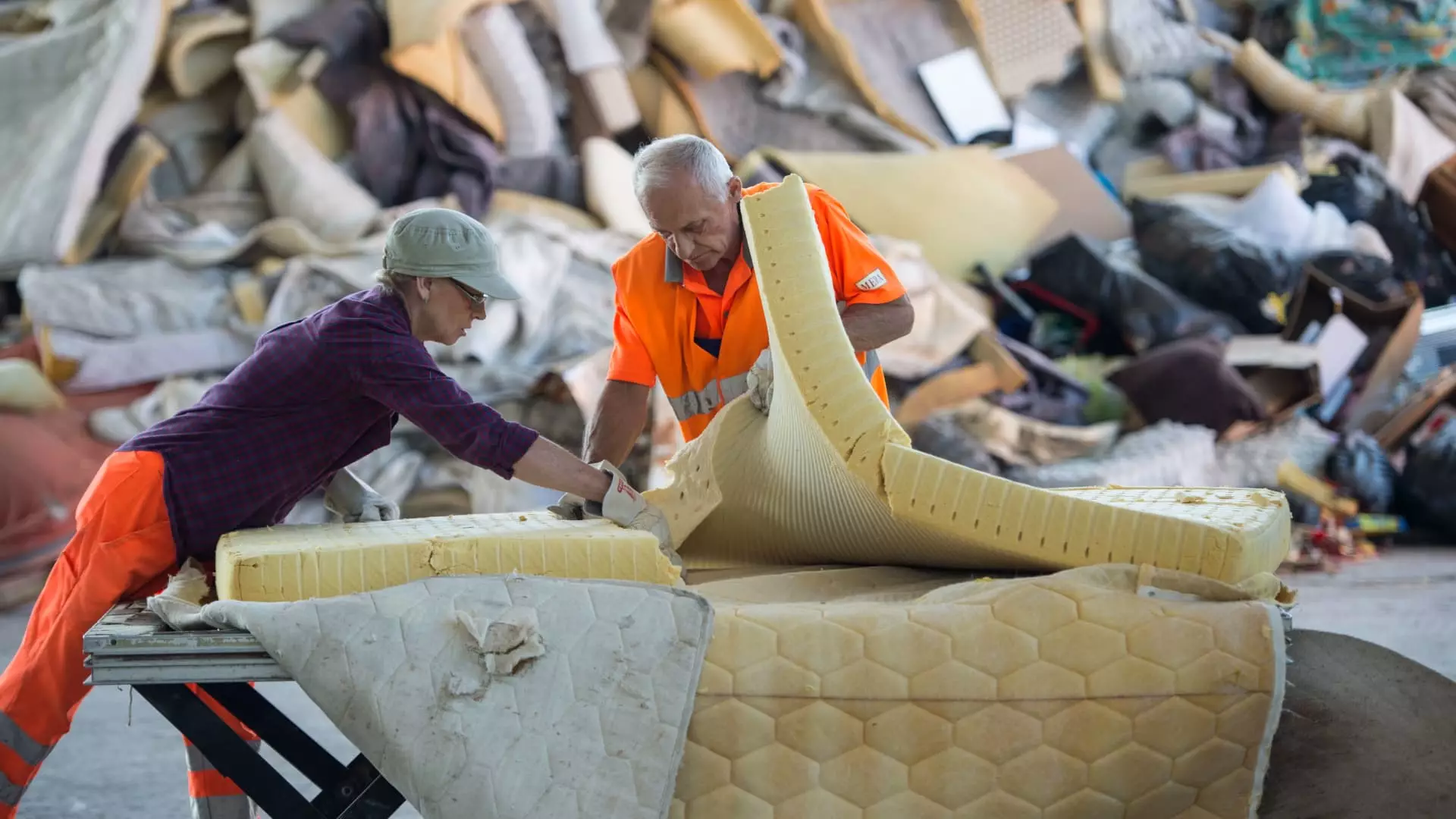In recent years, a notable trend has emerged in the United States concerning the mattress industry and its environmental impact. A select number of states—California, Connecticut, Oregon, and Rhode Island—have taken proactive measures by implementing recycling fees for mattress and box spring purchases. These flat fees, ranging from $16 to $23, serve a dual purpose: they not only incentivize recycling among consumers but also fund recycling programs that keep discarded mattresses out of overflowing landfills. This growing initiative is part of a broader movement toward promoting a circular economy that emphasizes sustainability across various household products, from plastic to electronics.
Statistics reveal the staggering amount of waste generated by discarded mattresses in the United States—between 15 million to 20 million each year, equaling approximately 50,000 every single day. This significant volume underscores the urgent need for effective recycling solutions. The Mattress Recycling Council (MRC), a nonprofit organization established by the industry, advocates for recycling efforts. Remarkably, over 75% of the components of a mattress—comprising wood, metal, foam, and fibers—are recyclable. Despite this potential, a severe lack of resources for proper recycling creates challenges for consumers and municipalities alike.
As of January 1, 2025, Oregon joined the ranks of states actively addressing the mattress disposal dilemma by instituting a recycling fee of $22.50 for each new mattress or box spring purchased, identified as a “stewardship assessment.” Meanwhile, California and Connecticut have adjusted their fees to $16 per unit, indicating a marked increase from previous amounts of $10.50 and $11.75, respectively. Rhode Island, too, has upped its fee to $20.50. These fees not only reflect a commitment to improving recycling rates but also indicate a growing recognition of the importance of responsible product management at the end of a product’s lifecycle.
Efforts are also underway in additional states such as Massachusetts, Maryland, New York, and Virginia, where lawmakers are collaborating with MRC to develop similar programs. The forward momentum of these initiatives signals a shift in legislative and consumer attitudes towards sustainability in the mattress industry.
Despite advancements, recycling options remain limited, particularly in states that have yet to adopt recycling laws. Across the nation, only 58 companies are listed to provide mattress recycling services, creating significant barriers for consumers eager to recycle their old bedding. In states lacking robust recycling programs, consumers often face hefty fees for drop-off services or home pickups (as exemplified by a $95 fee I encountered in New York City). This high cost effectively discourages responsible disposal and contributes to the prevalence of illegal dumping.
However, Oregon’s initiative is designed to counteract these hurdles by creating accessible locations throughout every county, allowing residents to drop off unwanted mattresses easily. This not only enhances consumer convenience but also serves to stimulate the local economy through the creation of recycling sector jobs.
The ongoing mattress recycling initiatives also exemplify the concept of Extended Producer Responsibility (EPR). This approach mandates that producers are held accountable for their products beyond the point of sale, particularly concerning their eventual waste. By engaging businesses in the lifecycle management of their products, EPR paves the way for sustainable recycling systems. According to Reid Lifset, an industrial ecology expert at Yale University, these programs represent a significant funding source for sustainable recycling. For instance, in Oregon, more than half of the statewide recycling fee will support program operations, while the balance will cover costs related to administration, public education, and outreach.
Such initiatives bolster not only local economies but also community awareness regarding the importance of recycling. With over 300 mattress collection sites established in participating states, the opportunities for responsible disposal are expanding.
As state-level initiatives regarding mattress recycling gain traction, they stand as a promising model for addressing waste and fostering sustainability within various consumer industries. With a growing recognition of the environmental implications of waste disposal, particularly in the context of the circular economy, consumers and lawmakers alike appear ready to embrace more responsible practices. While challenges remain, the strides made in states like California, Oregon, Connecticut, and Rhode Island mark an important step forward in promoting effective recycling solutions and, ultimately, a healthier planet.

